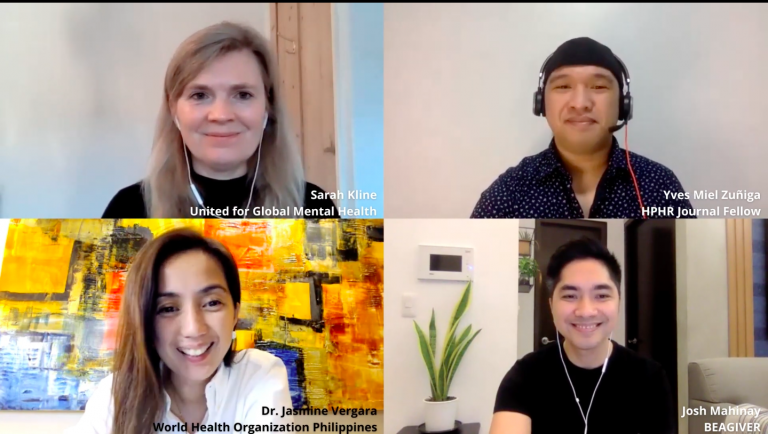
Well-being and the science of kindness
Kindness begins with the understanding that we all struggle.
— Charles Glassman Tweet
Kindness is a behavior marked by doing something good and beneficial towards yourself and others. It is also an act that is motivated by a genuine desire to effect a positive difference. Studies have shown that kindness and one’s mental health are strongly related.
With the unforeseen impacts of COVID-19, such as isolation and the worsening digital divide, kindness serves as a universal antidote: being kind to oneself can also help boost confidence and improve feelings of optimism amid uncertainty.
With invited panelists from United for Global Mental Health, the World Health Organization Philippines, and BEAGIVER, this roundtable discussion hopes to take a closer look at how kindness plays an essential role in our mental health and well-being during COVID-19.

"An extremely important core to kindness is empathy, which means moving with someone through their journey and taking the time to share their pain."
Sarah Kline, United for Global Mental Health Tweet
From the insightful discussion among our panelists, we learned how kindness can also mean empathy, respect for human rights, and even self-care (kindness to one’s self). We’ve learned in this session that kindness is core to safer spaces and more inclusive communities. After all, the kindness that we give to others is the same kindness you get through others.
Watch the first part of the roundtable discussion below.
Sarah Kline
Dr. Jasmine Vergara
Josh Mahinay
BCPHR.org was designed by ComputerAlly.com.
Visit BCPHR‘s publisher, the Boston Congress of Public Health (BCPH).
Email [email protected] for more information.
Click below to make a tax-deductible donation supporting the educational initiatives of the Boston Congress of Public Health, publisher of BCPHR.![]()
© 2025-2026 Boston Congress of Public Health (BCPHR): An Academic, Peer-Reviewed Journal
All Boston Congress of Public Health (BCPH) branding and content, including logos, program and award names, and materials, are the property of BCPH and trademarked as such. BCPHR articles are published under Open Access license CC BY. All BCPHR branding falls under BCPH.
Use of BCPH content requires explicit, written permission.